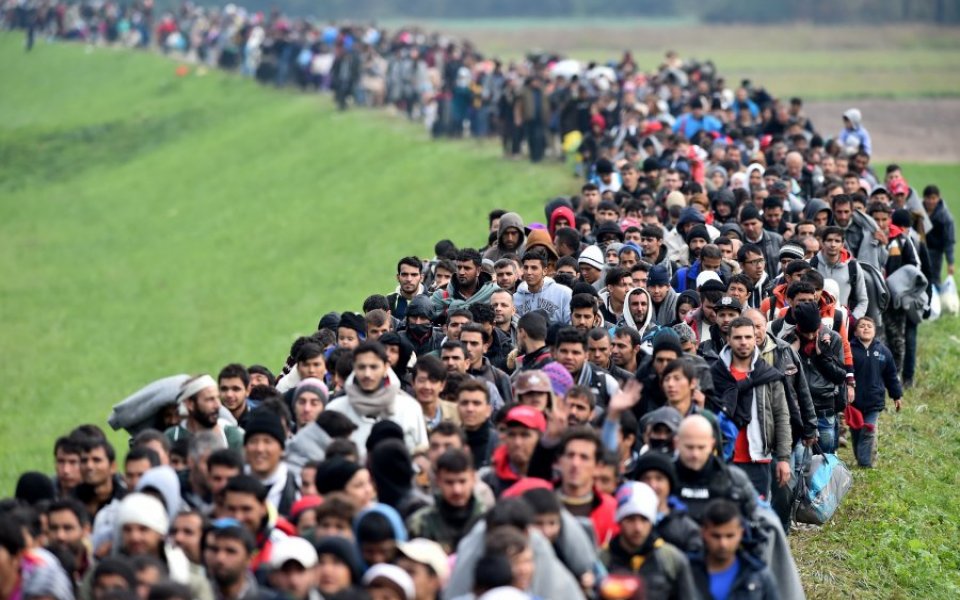The EU’s refugee crisis failures are a mark of its absolute decline

Once lost, respect in the international affairs arena is almost impossible to regain. This past week, an extraordinary exchange was reported which starkly highlights the EU’s absolute decline, and the contempt with which it is increasingly held. At the G20 summit, held in November 2015 in the lovely Turkish resort city of Antalya, an exasperated President Erdogan of Turkey turned on EU Commission president Jean-Claude Juncker over Brussels’ miserable policy failure regarding the refugee crisis. In essence, the EU and Germany’s refugee policy – such as it is – seems to wholly consist of subsidising the Turks to serve as Europe’s gatekeeper, keeping the crisis as far away from them as the Turkish President can manage. It amounts to less of a policy than a bribe.
But even this feeble effort to stave off the inevitable necessity of actually dealing with the refugee crisis has been bungled. Turkey, a country whose economy is increasingly wobbly, has spent an unplanned €8bn on the crisis and is hosting 3m refugees already, and it views with alarm the tens of thousands more on the way as a result of the fighting in Aleppo in Syria.
At Antalya, Erdogan was asking Juncker to pony up €6bn over two years to help defray expenses. The penny-wise and pound-foolish Juncker demurred, saying the EU was prepared to part with only €3bn. Enraged, Erdogan threatened to flood the continent with refugees. He thundered, “We can open the doors to Greece and Bulgaria any time and put the refugees on buses,” making it clear that he was the organ-grinder, and the EU the monkey, in the crisis. Pressed this past week on whether this reported threat to the hapless Juncker was accurate, Erdogan proclaimed, “I am proud of what I said,” while grimly noting that the EU had failed to deliver on even the miserly €3bn it had pledged months ago.
This would be farcical, if real people were not suffering and dying as a result of this breathtaking policy incompetence.
Since the entirety of the European political establishment seems to have forgotten what constructing a policy looks like, I thought I would use the remainder of the column to remind them.
The refugee crisis, if handled properly, amounts to a great opportunity for a continental Europe with a looming demographic crisis. Southern Europe – as well as pivotal Germany – has anaemic birthrates not within shouting distance of the 2.1 rate of replacement needed to keep their economies on an even keel. If this problem is not urgently seen to, there are only three ways out from under the iron laws of demography to fund Europe’s decadent safety cushion: raise taxes, lower benefits, or take in many more migrants or refugees. Given the continent’s allergy to the first two of these, the crisis amounts to a chance to right the listing European ship of state.
Technically – and also in order to save the vital Schengen open border system, which nurtures what little growth Europe has – the crisis requires a continent-wide response, in theory what the EU is precisely there for. Common funding for common border crossings at the continent’s periphery, in southern and eastern Europe, must be matched by funding for a large increase in the number of customs and immigration staff there. And above all this must be done now, quickly, immediately, all words the EU simply does not seem to understand. Bribe Turkey (but for God’s sake do so effectively) to keep a torrent of refugees from spilling over the border, but more importantly put in place a system that quickly and effectively processes the refugees at Europe’s common frontiers.
Far beyond these technical and organisational fixes, however, Europe needs a new social contract, agreed to alike by elites and the general public, which is both more welcoming and at the same time tougher on the refugees. By all means more refugees ought to be taken in, both for economic and humanitarian reasons. But they must be accepted on clear, agreed terms. They must learn the languages of the countries they intend to live in over time, and they must obey the laws of those countries or instantly be deported. Vitally, they must accept the social mores of the places that are taking them in. If a country is good enough to save your life, you should be good enough to follow (or at a minimum at least fully respect) its social customs.
Broadly following this yardstick could just about save Europe from the hapless suicide it seems to be drifting towards.